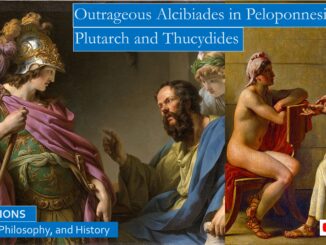After the death of Pericles, no popular leader arose that was able to dominate the Assembly like Pericles, which meant that it was impossible to follow a consistently stable wartime policy. Instead, Thucydides described a series of orators call demagogues. Pericles was the last Assembly orator who was also a general, he was elected to be a general for a dozen yearlong terms, in this war generals had to fight long campaigns and we unable to constantly address the Assembly, which led to the rise of the demagogue orators, who were often more interested in promoting polices that were popular with the people, and themselves, rather than promoting policies that would benefit the state. […]










